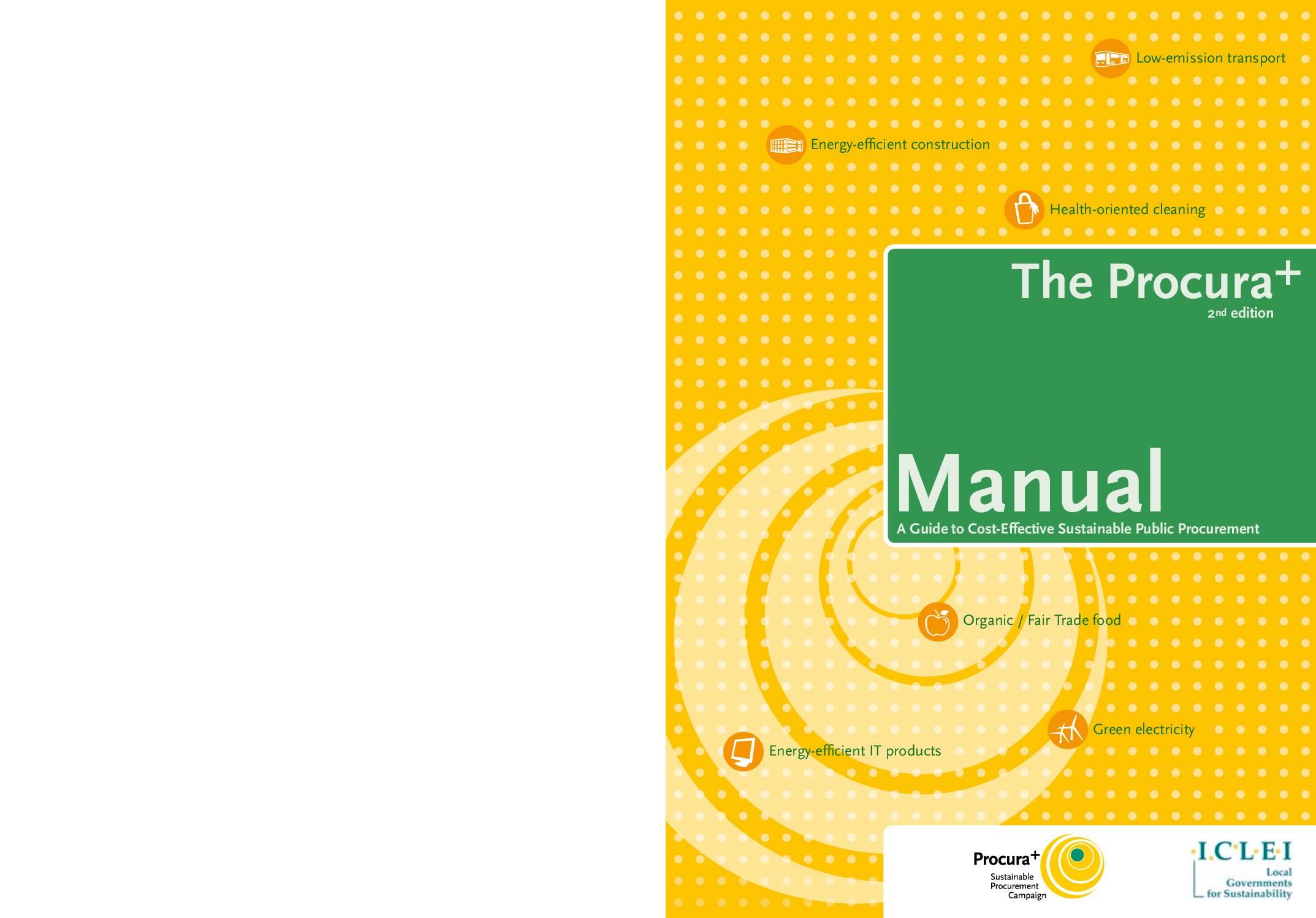Sustainable procurement is smart procurement – it means improving the efficiency of public procurement and at the same time using public market power to bring about major environmental and social benefits locally and globally.
Communities all over the world are facing the dramatic consequences of climate change, excessive use of natural resources, threats to biodiversity and increasing poverty. These problems cannot be tackled without making the shift to more sustainable production and consumption practices. If the billions of public Euro, Dollars, Yen or other were spent on products and services that foster sustainable development, a huge step forward could be made.
Typically responsible for 10-20% of spending, the public sector has significant purchasing power to drive the market towards the supply of sustainable products and services. However, this can only be achieved if the thousands of public sector actors work together to send a clear, unified signal to the market
Reducing environmental impacts: Every product or service bought has environmental impacts throughout its life-cycle – from the extraction of raw materials, the manufacturing of the product, through to its use and disposal. Taking smart procurement decisions can help to drastically reduce these, with benefits felt locally and globally. A great many more environmentally sound solutions are now available on the market at competitive prices – examples include more energy efficient school buildings, green electricity, catering services offering organic food and less polluting public transport.
Encouraging social improvement: Our purchasing actions also have social implications, and public procurement can be used to drive social improvements – whether this is guaranteeing good working conditions for publicly contracted construction workers, ensuring disabled access in public buildings, providing new employment opportunities for marginalised groups, working against child labour or supporting Fair Trade.
Achieving financial efficiency: Smart procurement of course also means efficient procurement. Too often only the initial purchase price is considered when buying products and services, ignoring usage costs such as electricity and water consumption, maintenance expenditures and disposal costs at the end of its life. Many products are also bought unnecessarily. Substantial savings are therefore possible.
Sustainable procurement can make a real difference – environmentally, socially and financially. At present, however, public authorities generally feel constrained in the application of environmental and social considerations to procurement due to a lack of support and secondly due to the lack of tried and tested tools.
This Manual has been developed by and for European public authorities providing clear and simple advice on how to implement sustainable procurement in a public authority – no matter what size or level of experience. It presents the implementation model and purchasing criteria developed for Procura+, ICLEI’s Sustainable procurement Campaign
Share this

Sectors: Buildings, Cross cutting, Industry, Power sector, Renewables, Transport
Country / Region: Europe
Tags: biodiversity, building types, climate change, economic cost, electricity generation, energy, energy efficiency, environmental impacts, extraction, global climate, impacts on systems and sectors, international development, manufacturing, natural resource use, passenger transports, procurement, public procurement, purchasing, social benefits, stakeholders, sustainable development, sustainable productionIn 1 user collection: Building Efficiency Accelerator: Procurement Resource Collection
Knowledge Object: Publication / Report
Published by: ICLEI - Local Governments for Sustainability,
Publishing year: 2007
Author: ICLEI - Local Governments for Sustainability,
